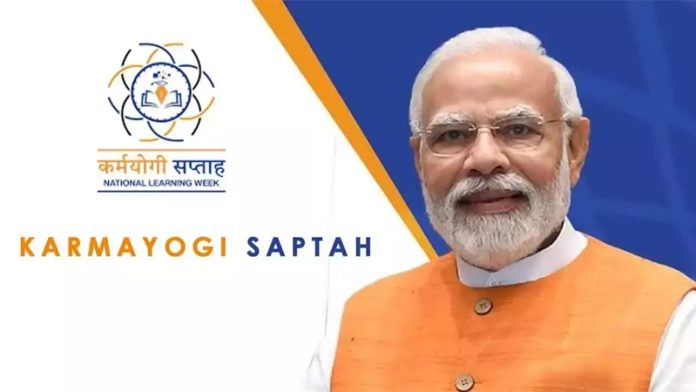The call by PM Narendra Modi for civil servants to adopt a citizen-centric approach marks a significant shift in governance philosophy. Speaking at the launch of the “Karmayogi Saptah,” the PM highlighted the importance of embracing technological advancements and innovative thinking to meet the aspirations of a rapidly evolving India. His emphasis on the need for civil servants to keep pace with modern developments, including artificial intelligence, underscores the urgent necessity for a modern, agile, and responsive bureaucracy capable of steering the country towards its ambitious goals. A “future-ready” civil service, one that is deeply rooted in Indian values but capable of adopting global best practices, is the need of the hour. The Mission Karmayogi, launched in September 2020, has laid the groundwork for this transformation. With the civil service traditionally viewed as a rigid, hierarchical entity functioning within outdated silos, this initiative seeks to break down these barriers by fostering collaboration, innovation, and continuous learning.
A key takeaway is the critical role of technology in this transition. Artificial Intelligence, with its capacity to process vast amounts of data and provide actionable insights, presents an opportunity to enhance governance. As per PM, there are two AIs-artificial intelligence and “Aspirational India”-and there is a need to balance both. For a country with immense diversity and complexity, leveraging AI to drive development for Aspirational India could be truly transformative. At the hands of a responsive civil service, AI can help personalise service delivery, improve decision-making, and increase transparency. Citizens, increasingly informed and empowered by digital tools, expect the Government to operate efficiently and accountable.
While the focus on technology is important, the human element in governance cannot be neglected. Emphasis should be on a citizen-centric approach, wherein Government services are tailored to meet the needs of the people they serve. This shift is crucial as it recognises that governance is not just about policy implementation but about ensuring that policies improve the quality of life for all citizens, particularly those in marginalised or underserved communities. Similarly, it is equally important to implement effective feedback mechanisms to ensure that Government policies and services align with the needs and expectations of the people. Civil servants must actively engage with citizens, not just to inform them about Government initiatives but to understand their concerns and challenges. This two-way communication can help bridge the trust deficit that often exists between the Government and the public, thereby fostering a more inclusive form of governance.
Another significant aspect is the focus on partnerships and collaboration. Historically, India’s civil service training institutions have operated in isolation, missing out an opportunities to share knowledge and best practices. The Prime Minister’s call to break down these silos and encourage partnerships across institutions and sectors, including startups and research agencies, reflects a more integrated approach to governance. By drawing on the expertise and innovative capacity of these entities, the civil service can develop new solutions to old problems and ensure that governance keeps pace with the times.
Mission Karmayogi’s central goal is to create a Government workforce that is deeply committed to the development of the country. The launch of the National Learning Week is a testament to the Government’s dedication to lifelong learning and capacity building. Ultimately, the success of these initiatives depends on the will of civil servants to embrace change and the systems in place to support them. The mindset shift within Government over the past decade is encouraging, as the progress seen today is the result of efforts by those within the system, bolstered by initiatives like Mission Karmayogi. However, much work remains to be done to ensure that the entire civil service is aligned with the national goal of achieving “Viksit Bharat” by 2047. The road ahead is long, but with the right mindset and tools in place, India’s civil servants are poised to lead the way to a brighter, more inclusive future.
Trending Now
E-Paper


